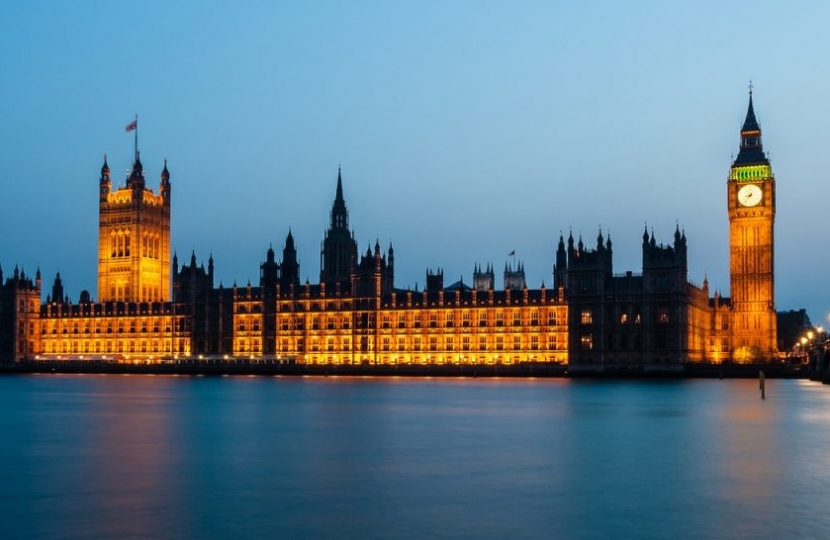
Thank you for contacting me about a range of issues that affect motorists, including fuel duty, measures to make cycling safer and emissions.
Firstly, as you may be aware, a continuation of the freeze of fuel duty was promised during the election campaign. I welcome the fact that the decision to freeze fuel duty for ten consecutive years has saved the average driver over £1,000. I am confident that we can build on this legacy, so that ordinary hardworking people can keep more of their money. However, it is worth noting that the fuel duty freeze comes at significant costs to the Exchequer, and that £67bn has been spent on freezing fuel duty and another £46bn will be spent by the end of 2025.
There is no denying that cycling and walking have a significant role to play in tackling some of the biggest health and environmental challenges that we face. I am therefore very pleased that the Government has committed to spend an additional £2 billion in cycling and walking over the next five years and that Ministers have published a bold new action plan to boost active travel.
However, I also fully appreciate your second point that there will always be a need for motorised private and commercial road vehicles and I understand that some of focus on cycling and walking has been perceived as an attack on this type of transport. You may be aware that the Lib Dem lead ‘Unity Alliance’ Council in the BCP area attempted to introduce several schemes during the summer with the declared intention of creating a safer environment for cyclists and pedestrians which had the potential significantly to disrupt motorised traffic. Whilst the Council sought to lay the responsibility for the scheme with the Government and, in particular to take advantage of short-term funding for temporary cycle and walking routes, it was clearly an ill-considered plan that benefitted nobody. The Council abandoned the scheme after a backlash from local people and businesses who should undoubtedly have been consulted in the first place.
I find it reassuring that at the same time as supporting cycling and walking the Government is embarking on Road Investment Strategy 2 (RIS 2), the largest amount ever spent on England’s strategic roads (those roads which link towns, cities and provide connections to key infrastructure sites). Spanning from 2020 to 2025, RIS 2 will be allocated £27.4 billion of funding to make these roads safer and more reliable, and to ultimately open up new educational, health, work and social opportunities for people living up and down the country. Indeed, RIS 2 will push forward much-needed projects that boost connectivity, like the Lower Thames Crossing and the A66 Trans-Pennine upgrade. RIS 2 will be funded by a new National Roads Fund (NRF). The NRF will receive funding equal to all the receipts collected by the Government from Vehicle Excise Duty. It will also deliver funding to enhance the Major Road Network and Large Local Majors programme between 2020 and 2025.
In addition, a new £2.5 billion Pothole Fund will run between 2020/21 and 2024/25 to help local authorities fill-in around 50 million potholes across the country and stop potholes forming in the first place. This financial year £500 million from the fund will see 11 million potholes repaired.
In respect of your third point, I support the Government’s legally binding target for the UK to reach net-zero greenhouse gas emissions by 2050. Given, as I have said, that I also appreciate the reality is that for many commuters and businesses it is simply not possible to forgo using a vehicle in all situations, I recognise the crucial role that the transition to electric and alternatively-fuelled vehicles will play in all our futures. As you say, the Government plans to bring forward to 2035 the date at which sales of new petrol, diesel and hybrid cars and vans end, subject to consultation. I understand that the date could be earlier still if a faster transition proves feasible.
The infrastructure is being put in place to facilitate the transition to EVs – including public chargepoints – the UK now has one of the largest chargepoint networks in Europe, and there are now more EV charging locations than petrol stations. In addition, the £274 million Faraday Battery Challenge is supporting the development of safe, cost-effective and high-performance batteries for EVs. This will ensure the UK builds on its strengths and leads the world in the design, development and manufacture of electric batteries.
In my view, a recognition of the importance of private and commercial road transport goes hand in hand with a desire to bring forward, as soon as we can, ways of travelling that reduce our impact on the environment.
I hope you find my response reassuring and thank you for having taken the time to contact me.
